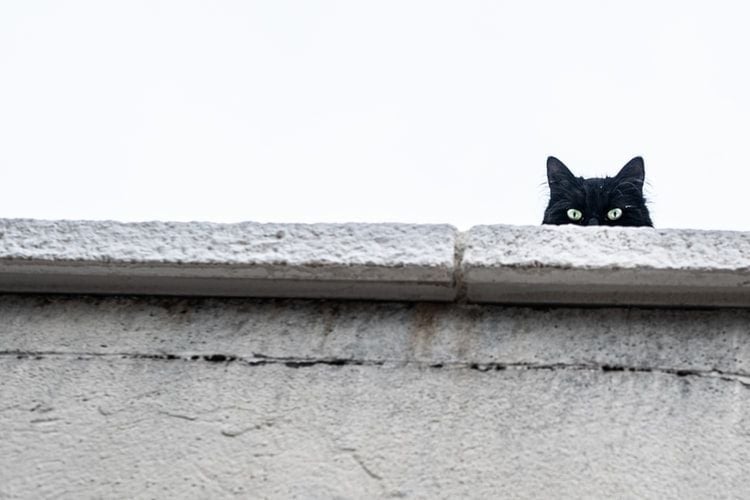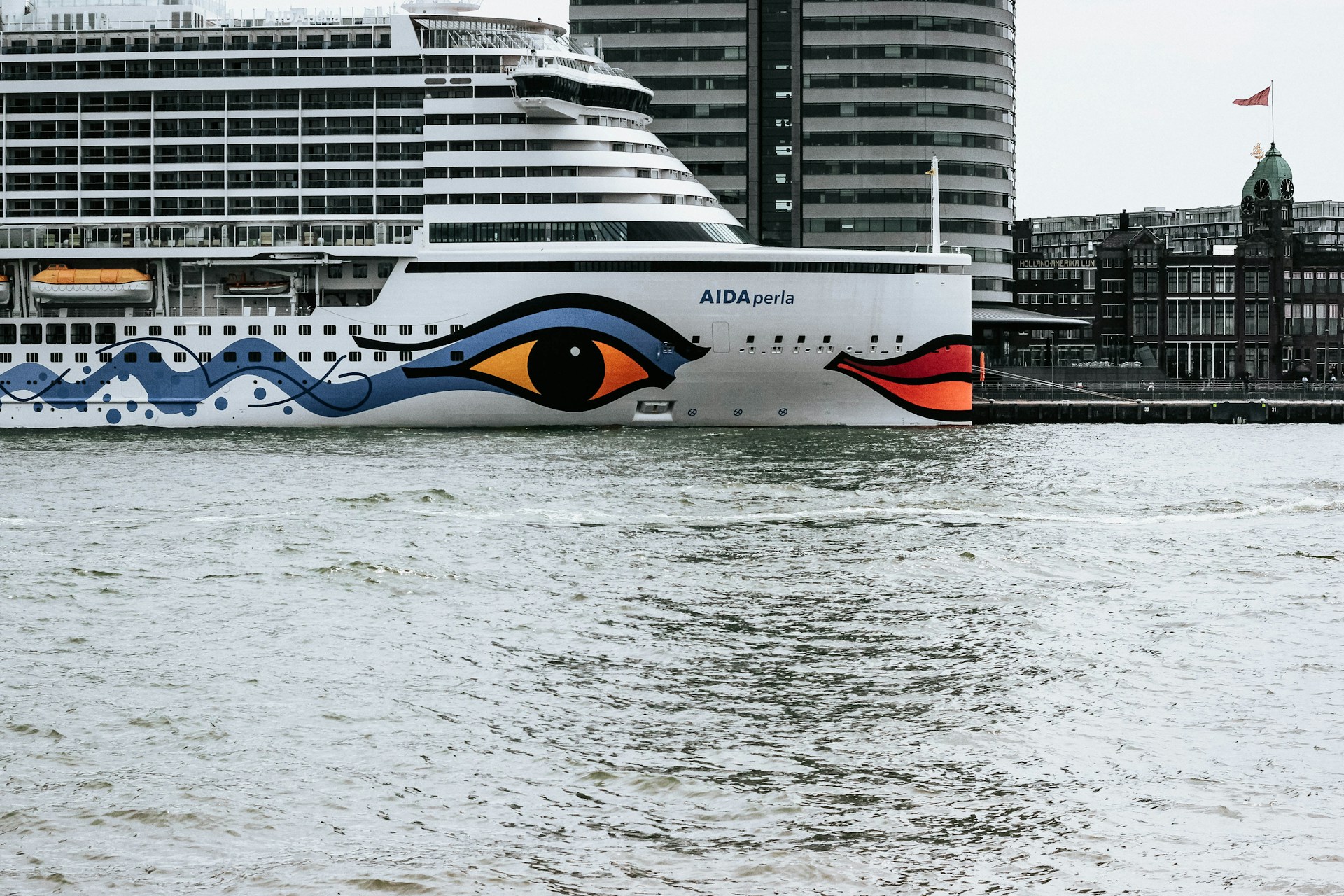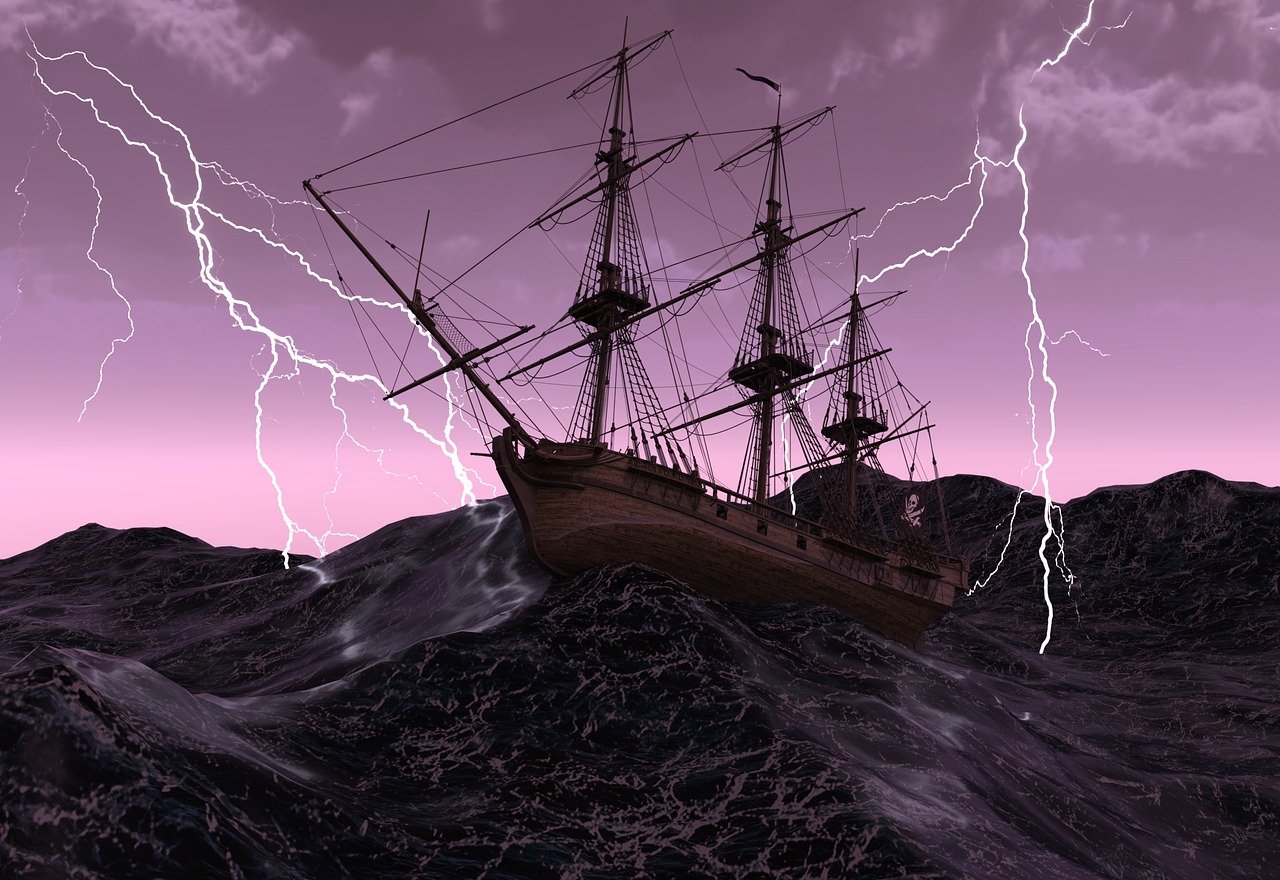Are you a seafarer working in jobs at sea, someone employed in shore based maritime jobs, or do you just have a passing interest in nautical life and/or superstitions and where they come from?
Ever wondered why bananas are bad luck on a ship? Or why you mustn’t mention pigs onboard? If so this is the blog post for you!
There are many superstitions connected with sailing, shipping, vessels and sailors.
And it’s hardly surprising that the maritime industry and jobs at sea have so many good and bad luck omens - after all, jobs in the merchant navy are some of the oldest professions in the world.
Other industries have their dos and don’ts too - for example, did you know that in the theatre, actors should never mention the Shakespeare play Macbeth by name? The play is said to be cursed, so when they’re in the theatre actors will avoid saying its name and instead refer to it as The Scottish Play.
Read more: The Mysterious World of Ghost Ships & Some Famous Examples
What are some unusual nautical superstitions for sailors
But what weird and wonderful superstitions are there in the nautical world? We thought we’d take a look at a few of them, and their possible origins.
1. No bananas allowed!
Bananas bringing bad luck to a vessel is an old superstition which possibly stems from the fact that the majority of ships that disappeared in the Caribbean during the 1700’s happened to be transporting bananas at the time. However that’s just one of the many theories as to why the good old banana is shunned at sea.

Other possible theories include the more practical reason that because bananas are quick to ‘go off’ and spoil, vessels carrying them had to get to their destination in the least time possible which made it harder for fishermen to catch anything during the voyage.
Perhaps this haste could also be linked to the disappearance of all those ships in the Caribbean?!
Read more: Why Ships Used to Have Cats Onboard
Another theory is that bananas posed a threat to the safety of those on the ship. This could either be through the possibility of a deadly spider stowing away onboard by hiding in the bunches of bananas (something that children today, even those who have no connection to the sea still believe!) or through the toxic fumes emitted by bananas rotting en route to their destination.
Who knew everyone’s favorite fruit bowl staple could be so dangerous!?
2. No girls allowed!
Traditionally it was thought that women would bring bad luck to a voyage because they had the potential to distract the sailors from their duties.
Not only that but it was said that this would in turn anger the ocean - which would then take its displeasure out on the vessel. That’s quite the chain of events!
If you’re wondering why ships are traditionally named after women and why the traditional ship figurehead was of a woman, well it seems the sea has a bad case of double standards: Naked women were actually very welcome onboard a vessel because they apparently had a calming effect on the ocean!
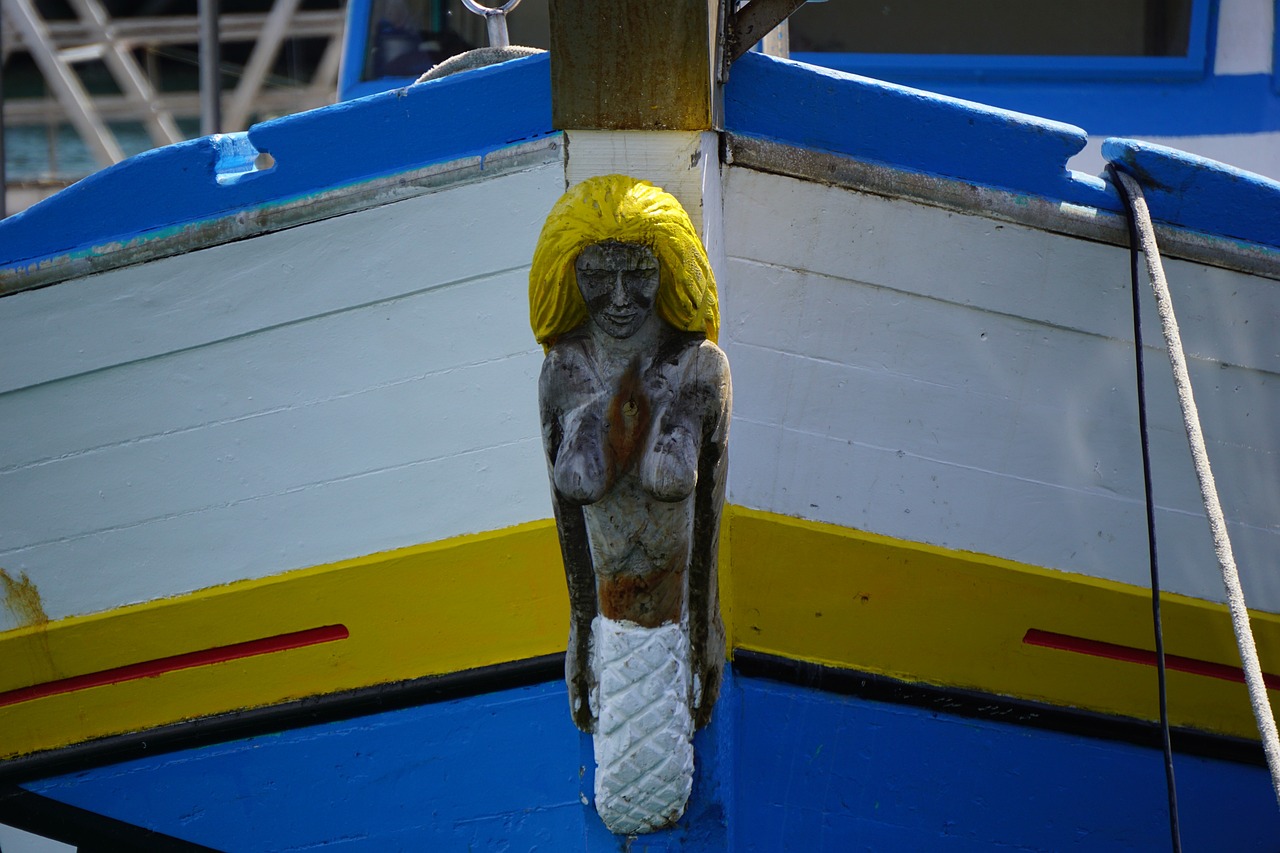
The sight of the topless figurehead was enough to ‘shame’ the sea into being calm, while her eyes had the added bonus of guiding the ship to safety. Thankfully things have changed somewhat since then and today there are many women working as cadets, ratings and officers alongside the men.
(Although it should be said that we should be doing all we can in the industry to encourage more women to seek careers in maritime jobs!)
3. Throw sharks off your tail
A shark following a vessel was seen as a bad omen and a sign that death would soon follow. In actual fact, a shark would have been trailing the ship for a far more practical purpose - in the hope of snapping up any food or fish that were tossed overboard!
4. But hope that dolphins will follow you
Unlike their toothy sea-dwelling neighbors, dolphins are seen to be bringers of good luck if they are seen following a ship. This is thought to be because of their close relationship with humans, their intelligence, and the belief that they offered protection
5. Please don’t whistle while you work!
This is perhaps one of the best known sailor superstitions and you will find many seafarers working in maritime jobs even today who won’t risk pursing their lips and whistling while they work. This is due to the long held belief that whistling while onboard will ‘whistle up a storm’ leading to bad weather and possibly danger.
6. What did you just say??
Similar to our example at the start of this blog post about actors who won’t dare utter the name of the Shakespeare play Macbeth whilst in the theatre, there are also a number of taboo words on ships.
Slip up and say out loud the word ‘drown’ (or drowned, drowning etc.) or ‘goodbye’ and you’ll find yourself very unpopular indeed!
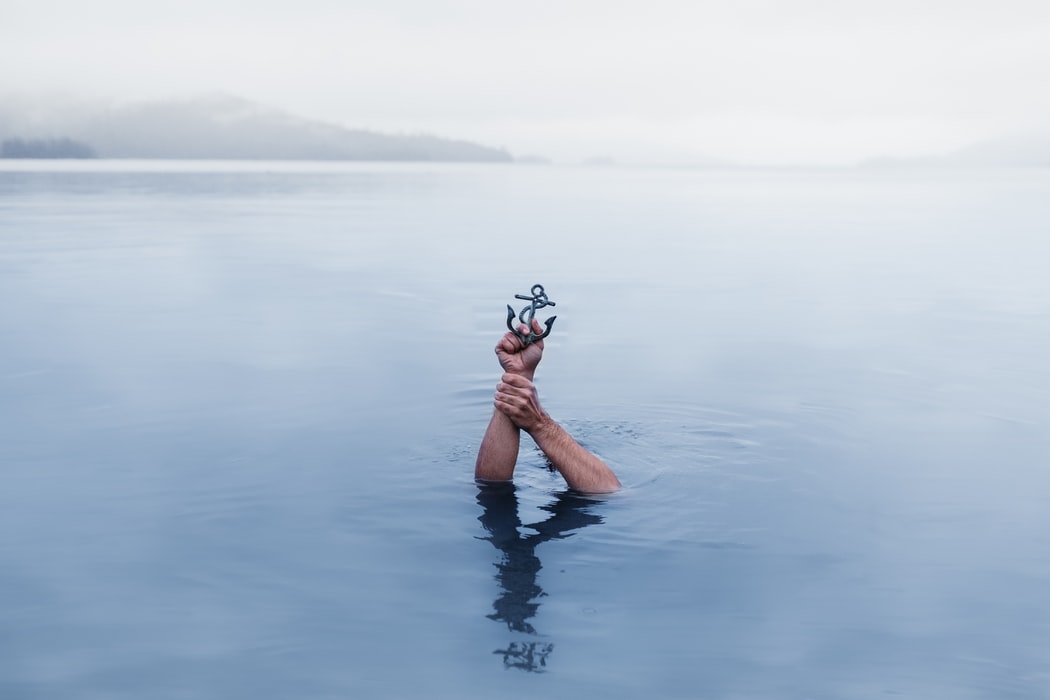
The reasons for this are pretty obvious - of course no one wants to drown while at sea, and saying ‘goodbye’ meant, quite literally that and that you might never see the person setting off on a voyage again.
Wishing someone ‘good luck’ is said to bring about the exact opposite, and the word ‘pig’ should also be avoided at all costs. The reason? Pigs can’t swim…
On the plus side the bad knock on effect of some of these words can be reversed - by drawing blood. We’ll leave that up to you how seriously you want to take it!
7. Red skies ahead
Anyone who is not a sailor might have grown up knowing the saying ‘red sky at night, shepherd’s delight...red sky in the morning, shepherd’s warning.’ If you’re nautically minded or working in maritime jobs, you’ll swap shepherd for sailor.
As on land, the same principle goes: if the sky is red while the sun is setting it means tomorrow will be good weather and a lovely day. However if the sky is red as the sun rises it means that rain and inclement weather are on the cards.
8. Accessories make an outfit!
In this case, gold hooped earrings. A sailor who was superstitious would wear gold hoops as they thought it would bring them good luck. When a sailor pierced his ear it signified that he had sailed around the world or crossed the equator.
It was also thought by some that gold had the power to protect and heal the wearer.
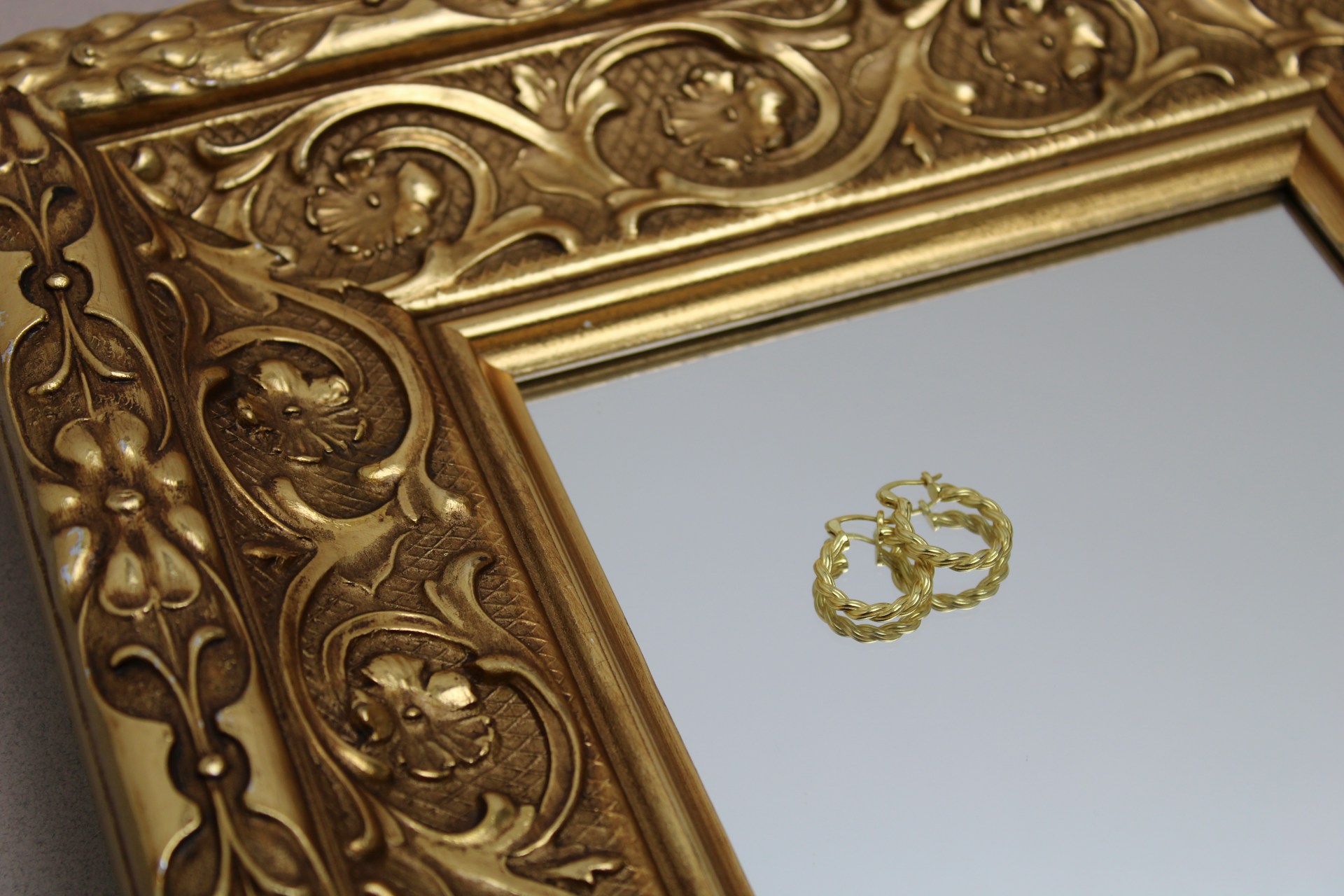
9. You must be my lucky star
Old school nautical tattoos might be all the rage these days but sailors had a reason for tattooing themselves, particularly with a nautical star. This was a popular choice of ink, as the North Star was a sign that the vessel was making its way home after a long voyage.
Read more: What is the History Behind Nautical & Sailor Tattoos?
10. Best (right) foot forward
If you board a ship make sure you don’t step onboard with your left foot first. Traditionally the left side has been associated with bad luck or ‘evil’. Even today many mariners will make sure they step onto a vessel with their right foot first.
11. Here kitty kitty!
Unlike most of our superstitions, the ship’s cat is seen as bringing good fortune. It was believed that cats could predict the weather.
And on a purely practical level, having a kitty cat onboard was thought to bring good luck simply because it killed rats. And rats can chew through ropes, eat food supplies and spread disease. Three things nobody working in maritime jobs wants!
12. The albatross: good versus evil?
That mighty seabird, the albatross, is thought to carry the souls of sailors who have passed away. To see an albatross whilst at sea is definitely lucky, however to kill one will only spell doom - precisely because of its connection to mariners who have died.
Why are the albatross and seafarers so connected? One reason is thought to be because albatrosses feel a great affinity to ships. (Hence the idea that they carry the souls of dead seamen.)
However, albatrosses also fly alongside vessels in the hope of picking up some scraps to eat - a bit like the shark!
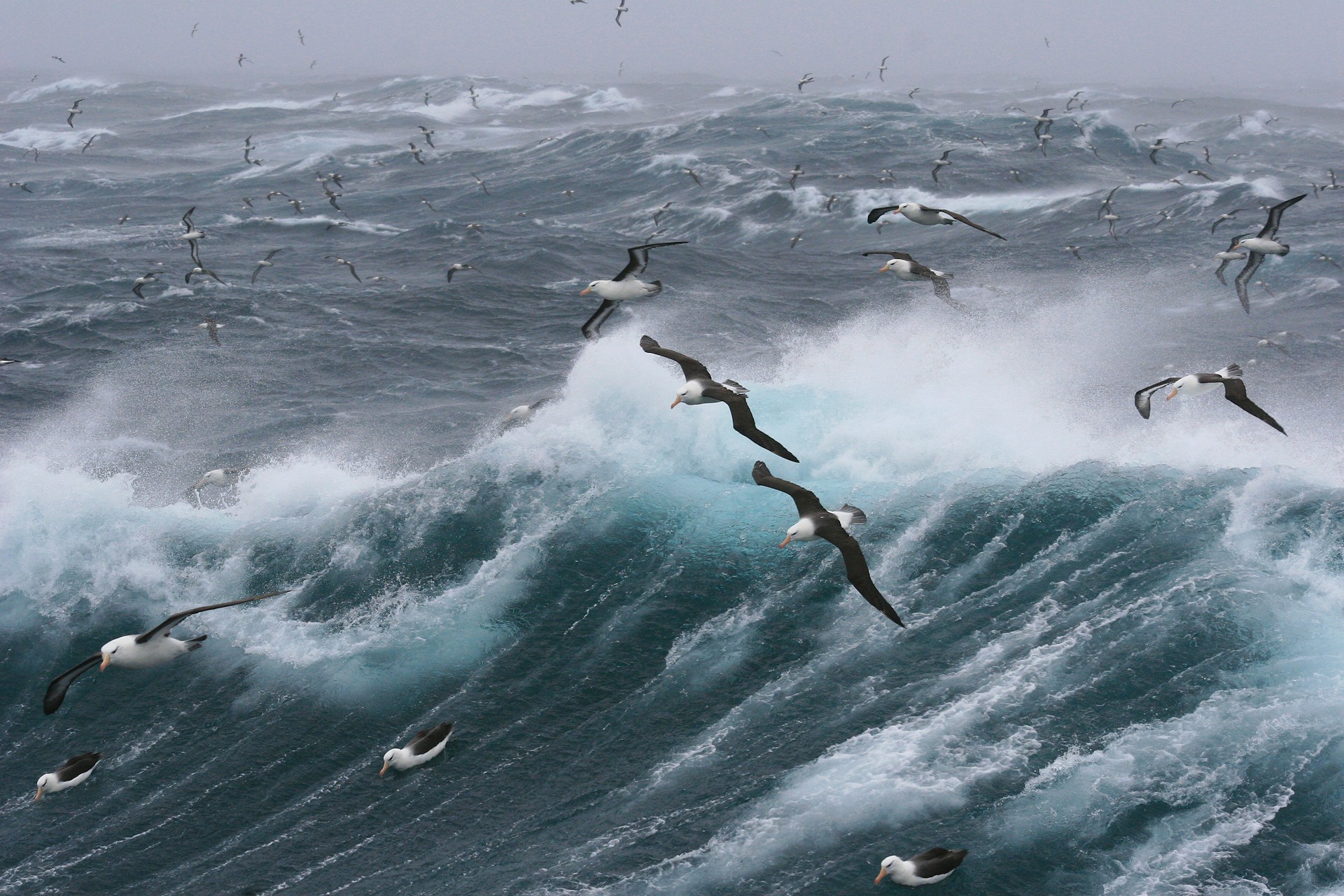
They are known as being particularly persistent, compared to other sea birds, and will hang on in there long after less dedicated birds have given up and turned back to shore.
13. Don’t buy me flowers…
These days it might be fashionable to have extravagant flower displays onboard the super yachts of the rich and famous but on container ships and other more ‘normal’ vessels flowers can be considered a no-no.
In days of yore, any flowers (and even petals) found onboard would be thrown overboard straight away. That’s because the flowers could have been used to make a wreath for a funeral.
What are your nautical superstitions?
Well, we’ve decided to end this post on number 13 - unlucky for some, they say - but we thought it was a fitting place to finish!
Which of your favorite sailor superstitions have we missed? There are many more than 13, that’s for sure.
Are you a seafarer? Do you believe in any or all of the above? Or perhaps you have your own personal superstitions that you always stick to when you’re about to board a vessel or while you're at sea?
Whatever sailor superstitions you do or don’t believe in, at Martide we wish all of you hardworking seafarers working in maritime jobs a safe voyage!

Eve Church
Eve is Martide's content writer, publishing regular posts on everything from our maritime recruitment and crew planning software to life at sea. Eve has been writing professionally for more than two decades, crafting everything from SEO-focused blog posts and website landing pages to magazine articles and corporate whitepapers.
UK
